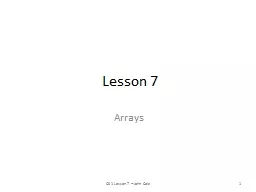PPT-Chapter 10, Lesson 3
Author : phoebe-click | Published Date : 2017-09-08
Nationalism Unification and Reform Bellringer Objective Students will understand what led to the unification of Italy and Germany after the revolution of 1848 Review
Presentation Embed Code
Download Presentation
Download Presentation The PPT/PDF document "Chapter 10, Lesson 3" is the property of its rightful owner. Permission is granted to download and print the materials on this website for personal, non-commercial use only, and to display it on your personal computer provided you do not modify the materials and that you retain all copyright notices contained in the materials. By downloading content from our website, you accept the terms of this agreement.
Chapter 10, Lesson 3: Transcript
Download Rules Of Document
"Chapter 10, Lesson 3"The content belongs to its owner. You may download and print it for personal use, without modification, and keep all copyright notices. By downloading, you agree to these terms.
Related Documents














